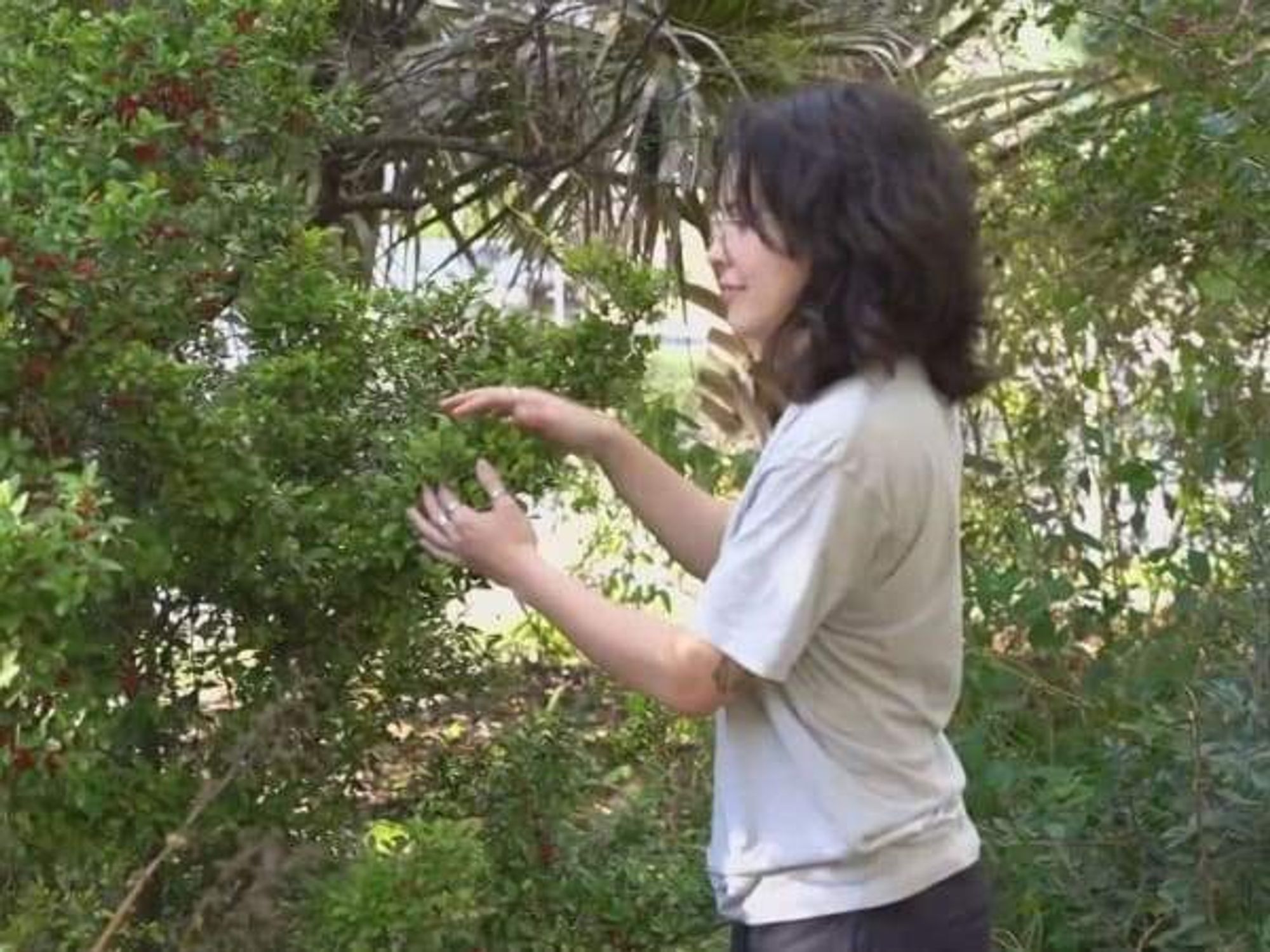Culture of Giving
Austin-based clothing company Open Arms restores dignity to female refugees

 Working at Open Arms
Working at Open Arms Claudina Raspberry Long Skirt
Claudina Raspberry Long Skirt Royal Blue Scarf
Royal Blue Scarf
Every company’s employees have their share of stories. But the ones you’ll hear at Open Arms aren’t the average collection, including tales of years spent in refugee camps, living amid danger and fear in Iraq, and finding unexpected friendships at the end of tumultuous journeys.
Open Arms is a one-of-kind clothing manufacturing company that employs six female refugees to make scarves and skirts, from countries including Iraq, Nepal, Congo and Sudan, and who have been resettled in Austin. A core principle at Open Arms is all employees are paid at least a living wage.
“It’s not just about the money, but also giving the women their dignity back.” said Leslie Beasley, co-founder and managing director.
40-year-old Tila Baskota had to flee her native Bhutan, aged 16, and take refuge in neighboring Nepal where she and her family lived in a refugee camp for the next 17 years, she said. Her family of 16 members lived in one cramped bamboo hut that leaked when it rained. It wasn’t safe to move around the camp after 8 p.m. She was resettled in Austin with her three children and found work at Open Arms.
“I feel happy, as it’s given us life,” she said of working there. “I enjoy the technical skills and working with a team from different cultures.”
Beasley can get tearful contemplating her two Sudanese employees, one Muslim and the other Christian, who were caught up in the fallout from their country’s religious fighting. Now they work alongside each other in harmony. “It’s a picture of what should be,” she said.
Flora Lado, 38, fled the Juba region in South Sudan with her seven children. After arriving in Austin she was helped by a faith community group, which bought her children Christmas presents. The year she started work at Open Arms, the group contacted her again about providing Christmas presents. “I buy this year,” was Lado’s reply.
Beasley was inspired after visiting a Ugandan refugee camp at the beginning of 2010 where she met women that had suffered “every atrocity imaginable.” Returned to Austin, she discovered that due to the city being a U.S. designated refugee resettlement center, women like those from the camp lived here, too, but as an invisible presence mired in isolation and poverty. Austin receives about 900 refugees annually.
She consulted Refugee Services of Texas and was informed living-wage employment was female refugees’ greatest need. According to federal studies the living wage for Austin is $11. Most refugees find jobs as dishwashers in restaurants or house cleaners in hotels and are paid minimum wage, $7.25.
R.T. was employed as an engineer in Baghdad, Iraq, but fled with her husband due to the violence and danger. (She didn’t want her name printed as her family are still there. She never wanted to leave them or the land which held all her memories but felt she had no choice.)
“Once fear takes over there’s not even sadness — the brain stops,” she said. “Fear takes everything from you.”
She got her job at Open Arms just as her husband’s temporary job ended and thereby maintained an income to sustain them. “Now I’m relieved and comfortable,” she said. “But I think about my family and friends.”
Beasley and co-founder Lacey Strake, along with five other female friends, started Open Arms in October 2010. The two-year-old company’s products are now in about 20 Austin stores, with scarves selling for $43 and skirts for $50 online.
Open Arms aims to add up to another ten employees by the end of 2013, as well as expand into every state. The vision is for the company to employ hundreds of refugees, providing many others the opportunity for dignity and self-sufficiency.
“This is a sustainable business helping lives become fully sustainable,” Beasley said.
